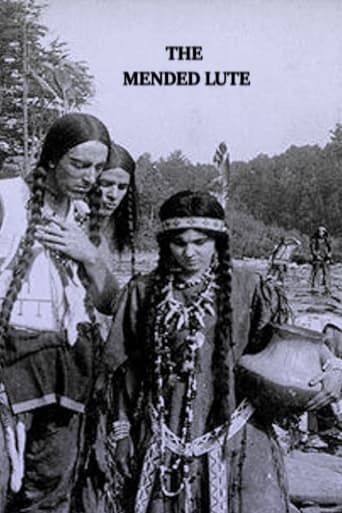deickemeyer
A Biograph which tells a tale of Indian love and romance, laid in the region about Spirit Lake, Iowa. It is the familiar love story, where the lover accepted by the Indian girl is objectionable to her father, and despite her protests she is given to someone else. The lovers manage to get together, however, and escape, but are captured and condemned to death. When tortured the brave exhibits such fortitude that he wins the admiration of his captor, who frees him and sends them away together. This is the story, but the working out of the details, which are believed to be true in every particular to Indian life as it was known among the Sioux at that time, will command attention wherever the picture is shown. For one thing, it illustrates an entirely new feature of that life. It is generally supposed that the Sioux is without sentiment of any kind, but to see here blended so much poetry and romance, and to see them both based upon what appear to be actual facts, is a view of Indian character which will be interesting, because new. And the technical quality of the work is beyond criticism, as the Biograph work is understood to be, while the acting is up to the high standard which those players have set. One wants to see this picture more than once because it seems convincing and develops such a new and interesting phase of Sioux character. The canoe race also is exciting and skillfully handled, a subject in itself. - The Moving Picture World, August 14, 1909
boblipton
Florence Lawrence loves Owen Moore, but her father prefers James Kirkwood, so Florence escapes from James' tepee -- did I mention these are Indians? -- and flees with Owen in a canoe, pursued by the rest of the tribe.The major problems with this one-reel story is that only Miss Lawrence seems to have caught onto the more restrained acting style that D.W. Griffith was developing; and the fact that I have seen this plot a dozen times or more from Mack Sennett, offered as a comedy. Griffith used the chase as a dramatic measure, but it was already well established as a comedy centerpiece. It would take extensive cross-cutting -- which Griffith would begin to tackle this year with works like THE SEALED ROOM -- and a subdued style of acting to make the chase a dramatic thriller.In the meantime, Griffith works on his compositions, both the group shots -- notice the early shots in which everyone is doing something reasonable and individual -- and his background shots. A lot of this is shot by and on the water and those compositions are quite lovely.It still doesn't quite work for me because of the many times I have seen the story as travesty and the chase as comic. However, Griffith was still finding his feet.
Michael_Elliott
Mended Lute, The (1909) ** (out of 4) D.W. Griffith film has a female Indian wanting to marry the man she wants but her father, the Chief, already has someone picked out for her. In a dangerous move the woman and her man try to escape the tribe. This is a pretty boring short even at only eight minutes long. There's a chase sequence at the end but it's not exciting and never gets any suspense going for it. Griffith's direction is all over the place with the only good scene being a knife fight between two of the Indians.You can view this film from Grapevine via their D.W. Griffith: The Director series.


